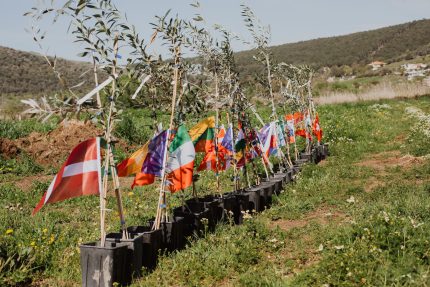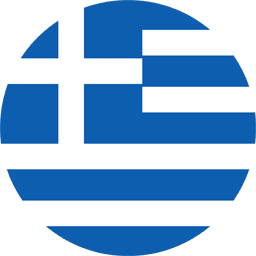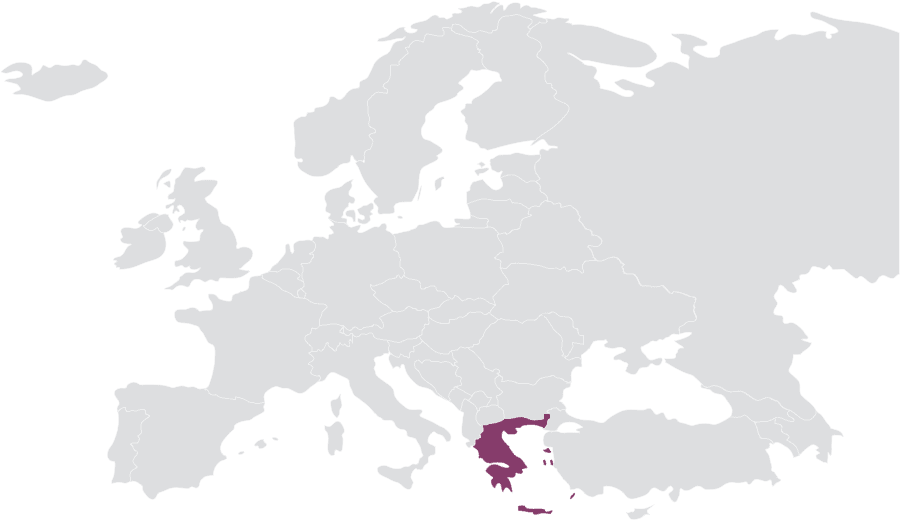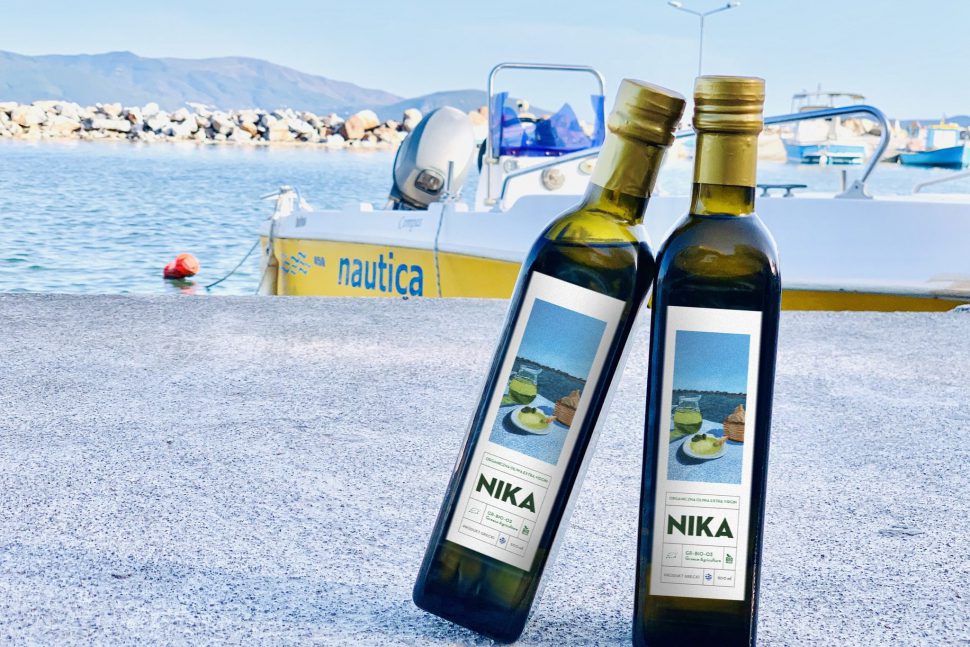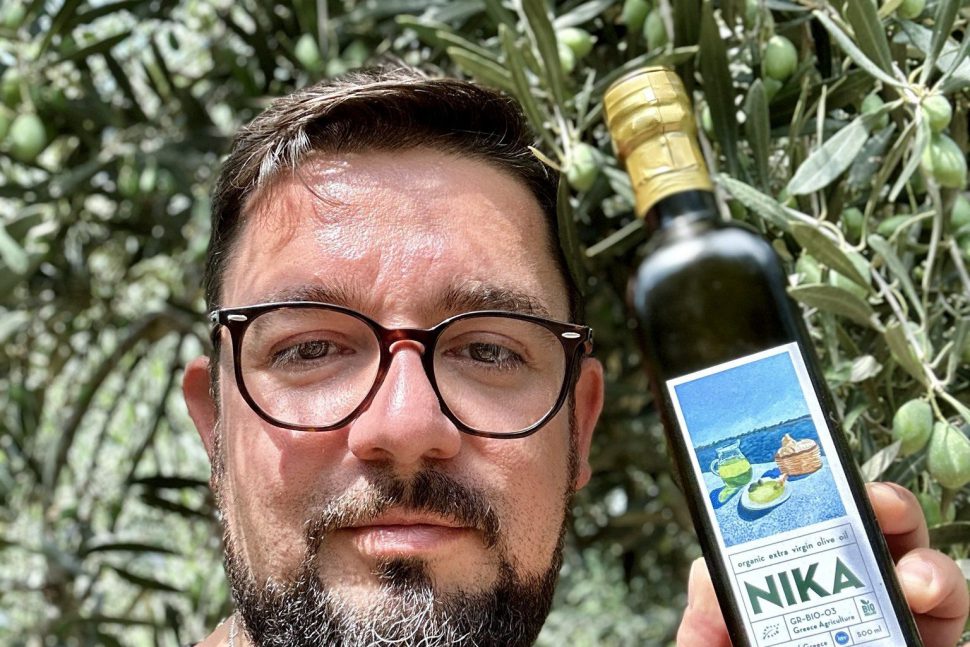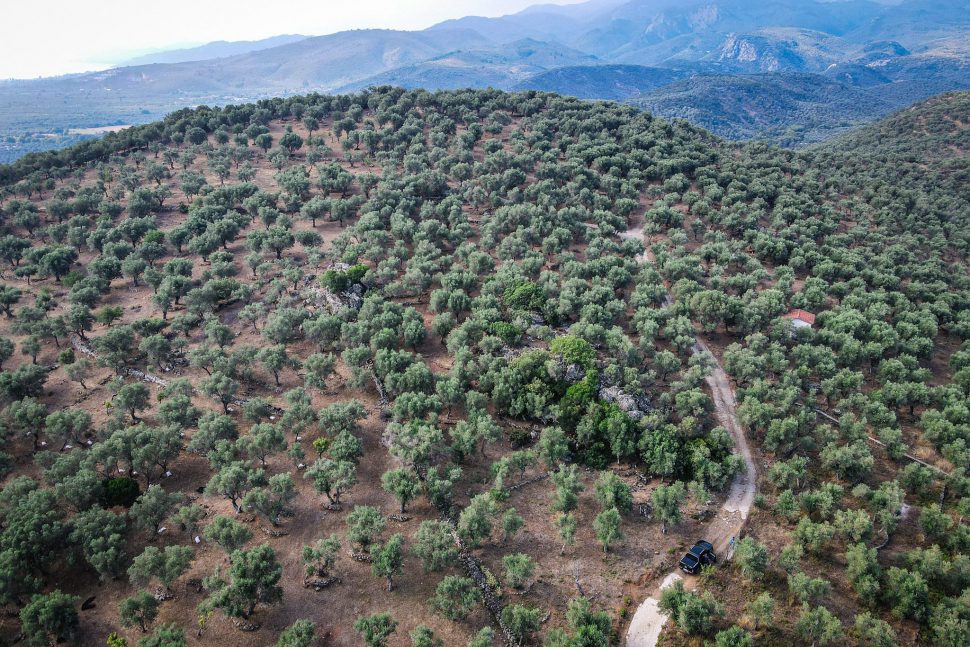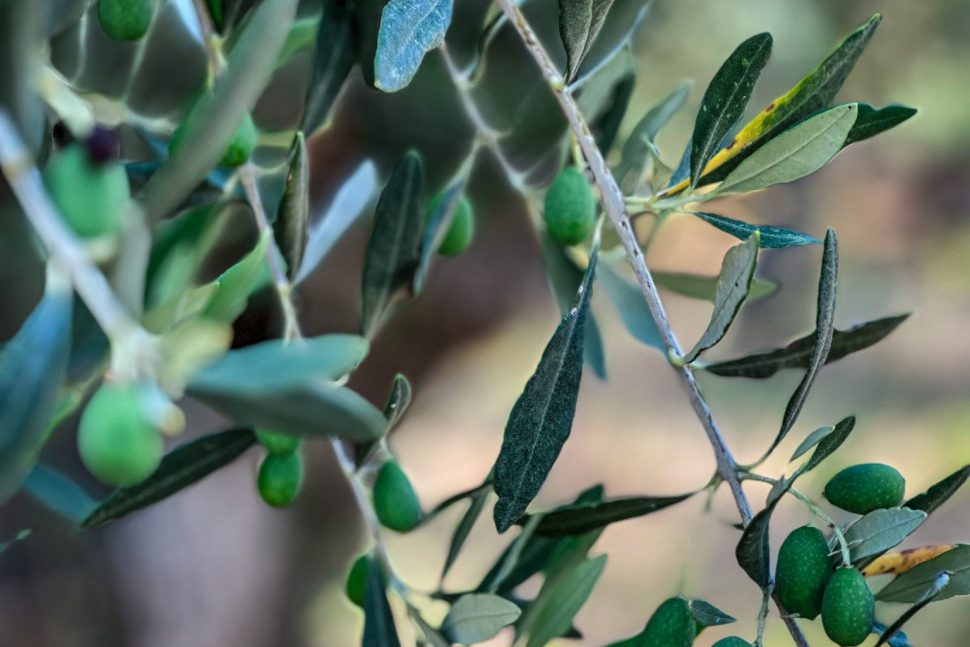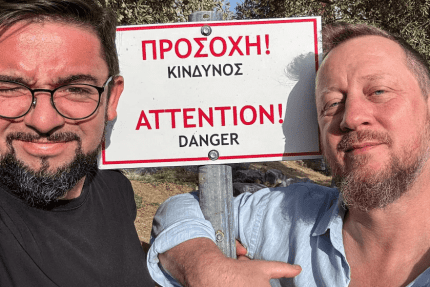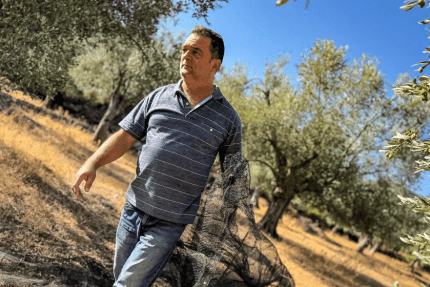“No disease will touch them. They are wild trees. They have already survived more than one pest.” When Nikos talks about olives, he grabs the listener’s full attention. You fall into a tunnel where there are you, Nikos and the olives. We talk like this for several hours. I don’t know how many. Nobody is counting. We haven’t even noticed that the Meltemi has started – a strong, dry, sea wind. It is blowing our heads off, but that is okay.
“Everyone makes olive oil here, the table kind, because it’s a staple in our cuisine. Olives are harvested in December and January. This is when they ripen and produce the most oil. People bring them to the factory, press them, take as much as they need for themselves and sell the rest. Companies blend them, bottle them and sell them. This is the oil as we know it. But we harvest our olives much, much earlier. In October. Even at the end of September. They are not so juicy yet. There’s a lot less oil from them, but that’s the moment when the polyphenols are boiling over,” says Nikos.
Polyphenols, so completely simplified, have antioxidant and anti-inflammatory effects. Those in olive oil prevent the oxidation of fats in the bloodstream and the formation of atherosclerotic plaques in the blood vessels. They are also said to have anti-cancer properties. Polyphenol-rich olive oil can be recognised by its green colour, indicating that the olives are from an early harvest. It has a slightly bitter taste and a pleasant burning sensation in the throat.
“Italy and Spain have been hit by the olive disease. This year, prices will skyrocket because there will be less of the harvest. Greece will also be hit by the disease, but not Lesbos. Olive trees in plantations live a maximum of 40-50 years. They are cultivated, planted too densely, and they get sick. Ours in Lesbos grow wild. They are 500-1000 years old. They fruit like crazy, no disease can get them. Olives, growing wild between natural vegetation, mint, thyme, oregano have a unique, rich flavour.
Nikos doesn’t want to convince me. He doesn’t need to. Everyone in Greece knows that the wealth of Lesbos is the old olive trees. The island has 15 million of them. The oil from them is unlike any I have tasted so far. Its taste is addictive.
The polyphenol-rich oil is made by only two producers on the island. They sell half a litre for 35-40 euros. Ours is additionally organic, without chemicals or sprays. The old, strong trees produce the best themselves. They don’t need to be cheated, artificially strengthened,” Nikos explains.
Our oil is not cheap. You can get cheaper oil in the supermarket. But you won’t find the kind of oil we have to offer there. The quantity is limited. We don’t wait for the olives to ripen and give us quantity; we press them when they give quality.
You can only get our oil at a promotional price until the end of the pre-sale. It will be available in the regular offer and regular price from 20 August.
